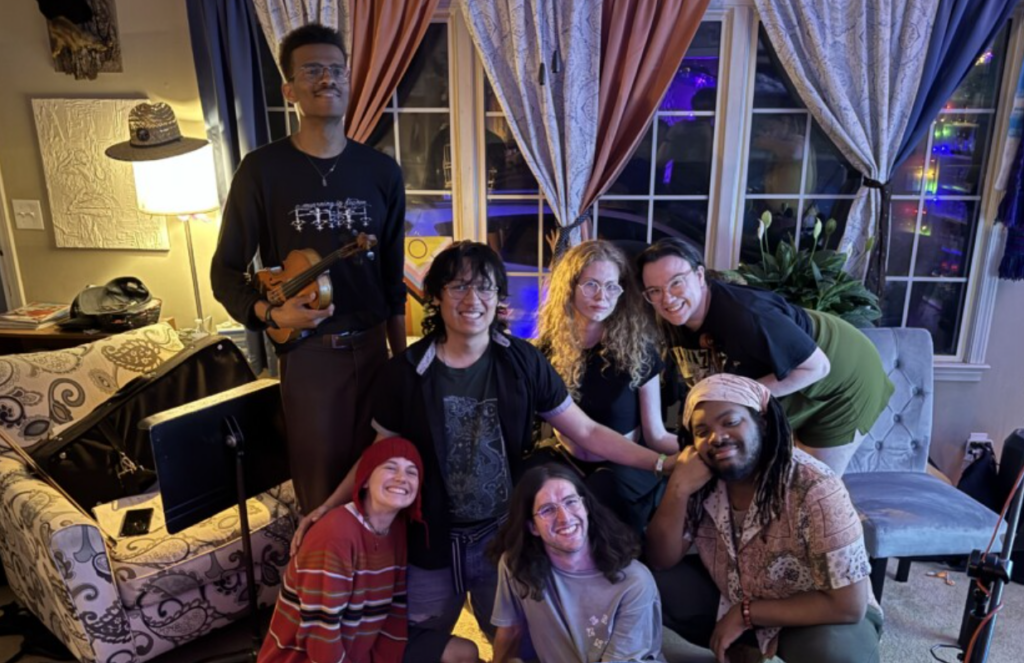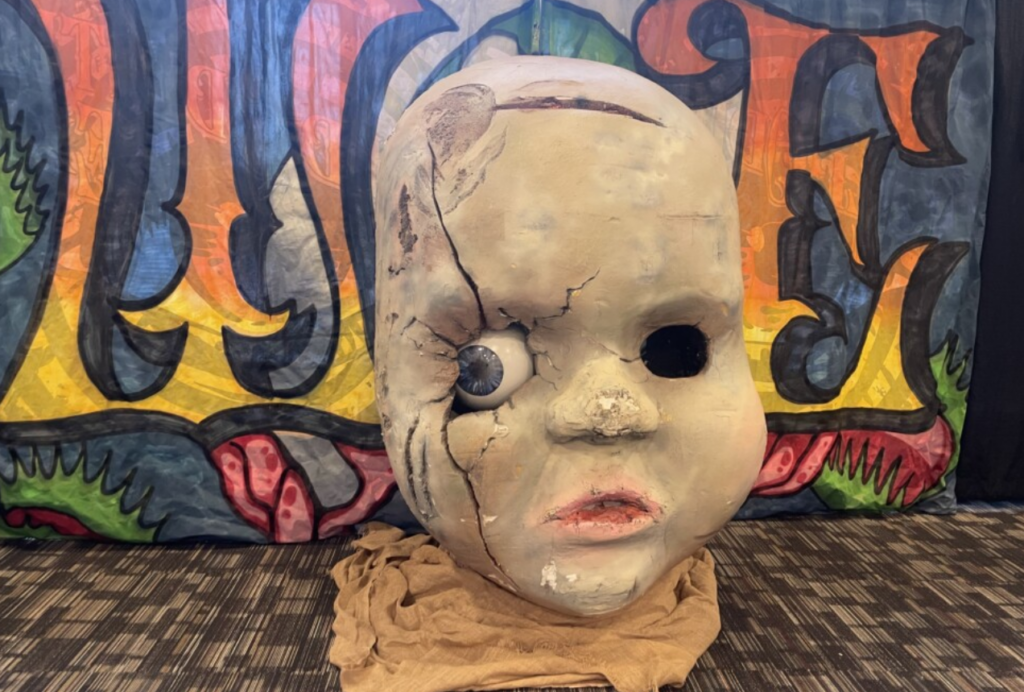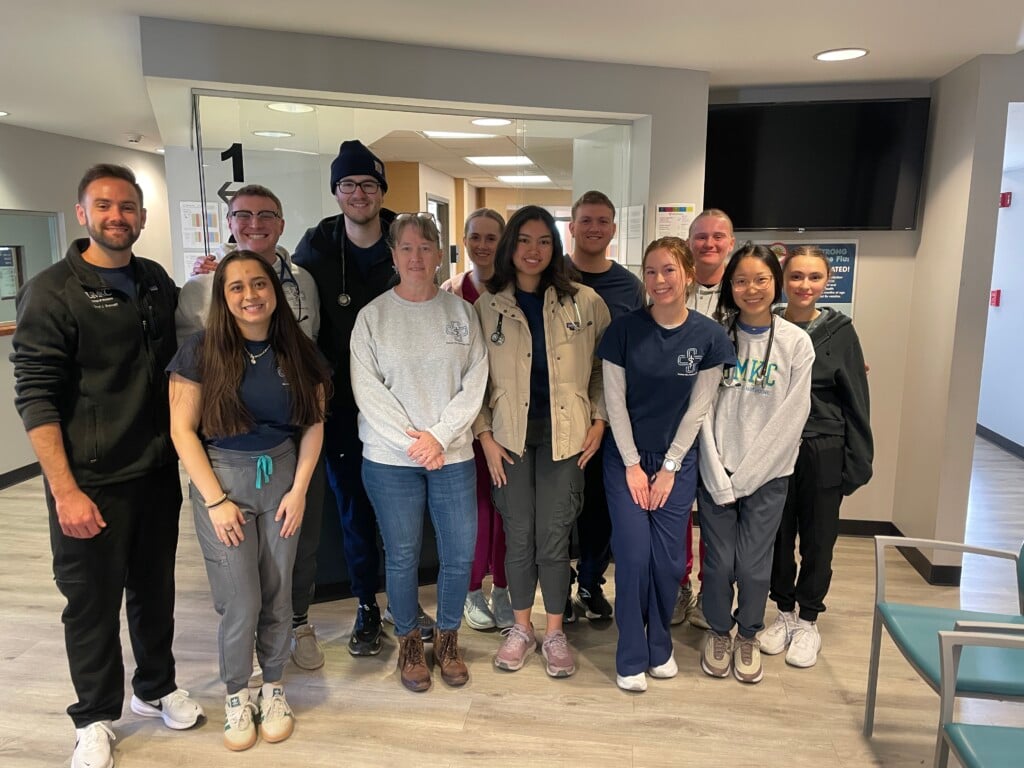William Shatner on life, liberty, and Boston Legal ahead of his journey to Planet Comicon Kansas City
William Shatner landed the role of Capt. James Tiberius Kirk of the U.S.S. Enterprise for the second pilot for Star Trek, after the Hollywood suits rejected Jeffrey Hunter from The Searchers and King of Kings in a similar role.
Perhaps Shatner was more convincing as the captain of a starship because, at 91, he might just live long enough to see the 23rd century.
The two-time Emmy-winning actor—for playing legal eagle Denny Crane—has traveled the world and even left earth’s orbit for real last year aboard one of Jeff Bezos’ Blue Origin spacecraft.
His next stop will be Planet Comicon Kansas City next Friday and Saturday, March 17-18. Tickets are $31.99 for Friday and $53.99 on Saturday. He’ll be joined by fell Star Trek alumni Jonathan Frakes and Brent Spiner and actual NASA astronaut Nicole Stott.
Shatner’s career has been as adventurous as Kirk’s or T.J. Hookers, and it actually started here in Missouri. He spoke with The Pitch via phone from his home in Los Angeles last week.
The Pitch: In your new book Boldly Go, you recounted how Blue Origin engineer Mareach “Mo” Angok was both a former refugee from South Sudan and a Star Trek fan. What was it like to have the success of the mission dependent on a fan of your show?
William Shatner: You don’t mean success. You mean my life.
Whether it’s my existence or my reputation, or my pleasure, my life is in the hands of people all the time. In fact, I’ve got to guess that all of us depend on people for our lives in one way or another. You’d be surprised at how often your life depends on some individual.
That’s true because you’ve said in the past that many of your better roles depended on chemistry with other actors. You can see that between you and Leonard Nimoy in that touching moment at the end of Star Trek II: The Wrath of Kahn.
You know for the last two months, I’ve been in essence on tour with The Wrath of Kahn. This weekend I’ll be on a 4:30 a.m. flight to Atlanta, where I’ll be at a theater that will play a refurbished presentation. And then at the end of the movie, I’ll come on and do an hour and a half in front of the audience and answer about the film. I’m about to do four cities of Atlanta, Milwaukee, Detroit, and Indianapolis this weekend—doing that film.
Wow! I’m still curious. Why do you think that scene is so powerful?
Kahn is a tearjerker. The science fiction films of today are filled with incredible computer graphics. In fact, the Star Trek films that I have been on have had a box office ceiling of about a hundred million dollars.
The rule of thumb on films is you got to make three times what you spend on the film to account for not only the original cost but all the other costs that accrue. So, if you make a hundred million dollars and they gave us 30 million to make a film, you’re making a small profit, $10 million, given the amount of money and energy that had gone into it.
J.J. Abrams was able to break that when he put in all those computer graphics that we never put in before, because we were focused on having a human story in Star Trek.
So, The Wrath of Khan is a very human story, which involves the death of Spock. And I think that moment, not just people who liked Star Trek, but that whole movie is very touching. And, from that point of view, it’s a wonderful film.
Now you’re coming back to Missouri, where you filmed your first starring role in a movie in Roger Corman’s 1962 civil rights drama The Intruder. Now, you are coming as our welcome guest, but wasn’t making that film dangerous?
It was. It was. There were several gangs, guys who had come out of prison and still remained in their gangs, all black, all white mixed gangs. And they were all after us, for one reason or another.
I had an escape route planned from my motel room. I would dive out of the bathroom window, which faced a cornfield and run into the bushes. I was prepared to run as quickly as possible in order to save my life because we were threatened on many occasions. We had police protection when we were shooting. And there was quite a quite a few interesting stories attached to the filming of The Intruder.
And was this very different than something you would’ve experienced growing up in Montreal?
I was born in Montreal, and there were Canadians who spoke French and who, identified with the French background were very upset over the many years with the English-speaking Canadians, because although there were like 3 million French Canadians in Quebec and maybe 250,000 English-speaking Canadians.
But in those, in these early years, when I was born and went to school, I ended up going to McGill University in Montreal. By the time I was in my middle twenties and left Montreal, there was the beginning of a movement for Quebec to leave Canada, and it came within one percent of the votes to leave Canada.
And now it’s far different than it was 50 years ago. But there was enough animosity between French Canada and English Canada.
I don’t think it could have happened much like, you know, Texas deciding to leave America. But people voted in that direction.
Speaking of civil feuds, one of your most beloved roles is Denny Crane in Boston Legal. Did you notice that people started having different attitudes about people with memory issues as you were playing the role?
Yes, but I’ve forgotten them. [Laughs]
I didn’t attempt to be funny.
I knew, and now I know better about people suffering from senility and Alzheimer’s. And I felt an identification with that character, the sadness of a talented human being in whatever that talent, wherever that talent took place, losing that talent, losing connection with the world around them, losing everything that made them human. And there was this cell of a human being had no memory.
I had the experience a couple of years ago. I was doing an interview show called I Don’t Understand. I talked to an actor who was suffering not from Alzheimer’s but from one of the diseases where the body attacks itself. So, he was losing his ability to talk. He was losing his ability to perform because he was an actor. He was losing everything. And I said, I’d like to interview you, but what I want to talk about is about death, and its approaching, which was really hard. He agreed to that interview, so I spoke to him about the, the very subject of losing everything. He could still talk about the tragedy that I saw was about him.
Six months later, I saw him at a Comicon where he was appearing. He was in a wheelchair. I said hello, and the disease had now approached to the point where he couldn’t speak. He had ALS, so from the moment, from the time that I spoke to him about approaching death. Your mind is totally there, but you can’t talk or move.
Oh, that is rough. In one of your other books, Get a Life!, you described how Star Trek debuted at a convention like this one before it hit the airwaves.
Yes. Gene Roddenberry went to a convention [Tricon] before Star Trek was on the air. That’s exactly right.
Haven’t you also said that conventions have helped you when you’ve been at low points in your own life?
Star Trek was in the ratings in the top forties and was on the cusp of being canceled. And so, with the effort of fans writing in and making a fuss, the legend is NBC kept it on the air. Uh, that’s maybe what you’re thinking.
At the end of the first series, I had just been divorced. I was broke, and I was doing Summer Stock after Star Trek, and I lived in a cab over a pickup truck because I probably could afford the motel, but I wanted to save the money. So, I was in effect homeless for three or four months. Fans all came to the summer theaters that I was at the time, and that helped me survive.








